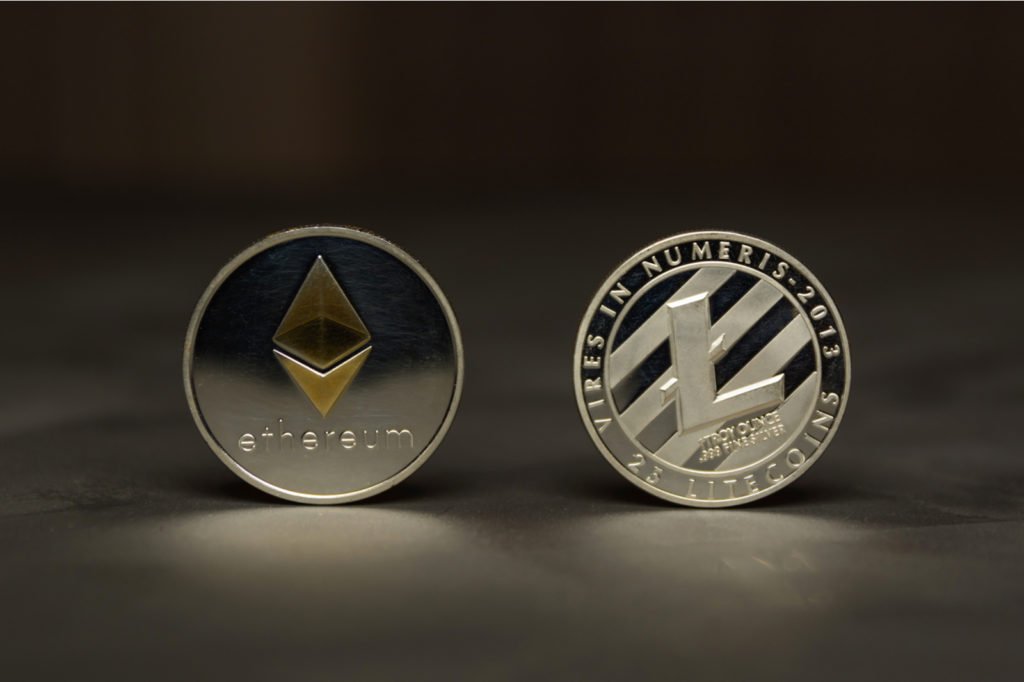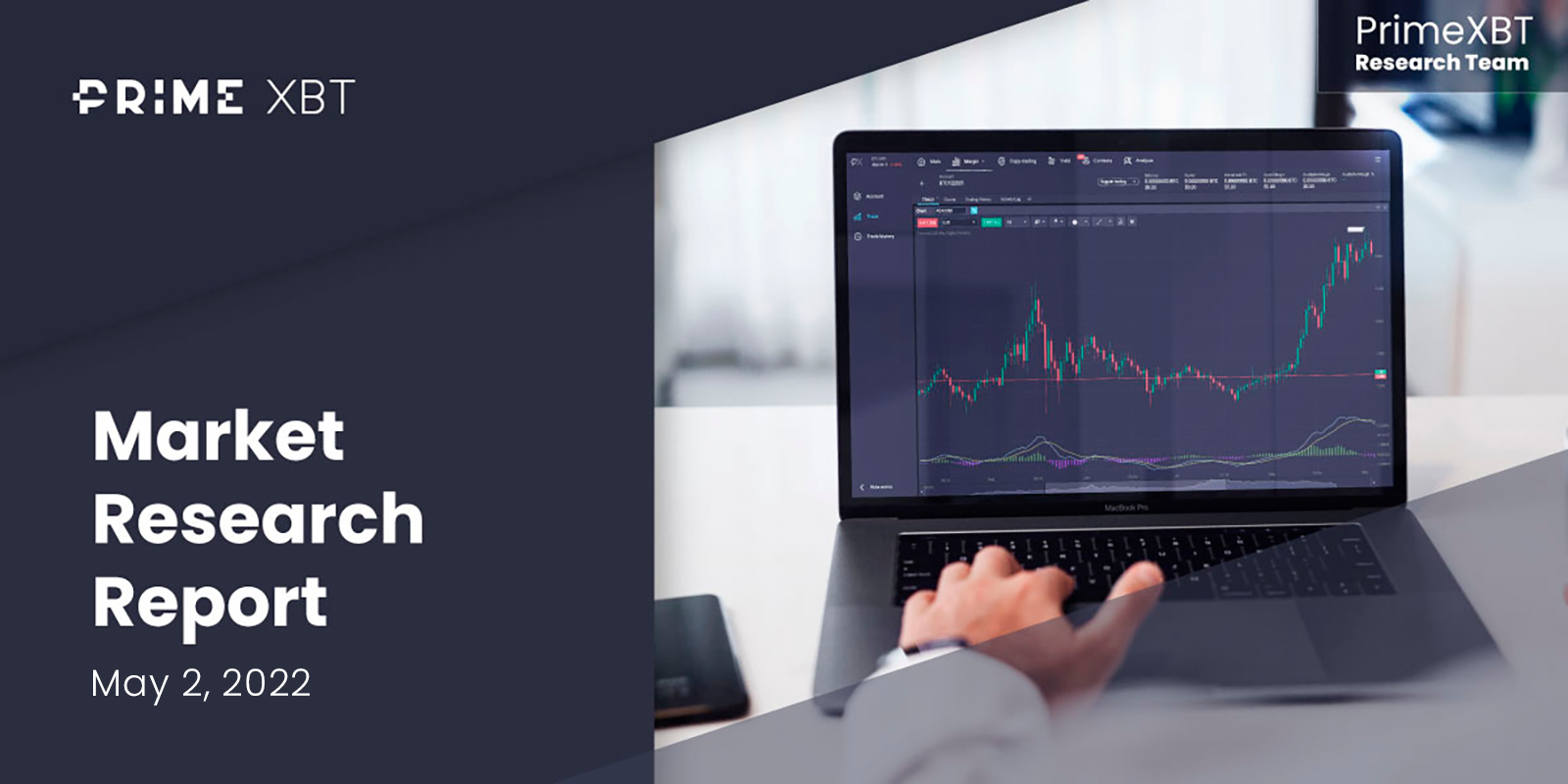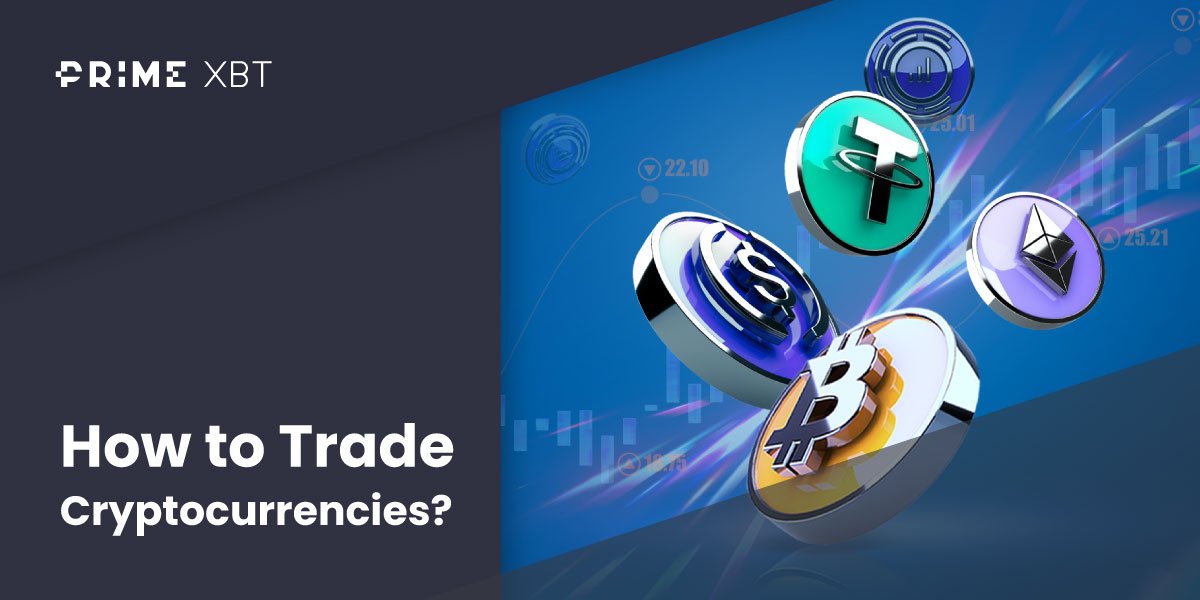In the world of cryptocurrencies it is true that Bitcoin is still king. However, ever since Bitcoin was created in 2009, there has been a growing space of different types of coins and blockchains all aimed at solving other issues and advancing the core message that Bitcoin set out to address.
Bitcoin is a relatively simple cryptocurrency in terms of the possibilities of the blockchain, as it was the original version of the technology. It is also the benchmark that other chains and coins try and improve upon.
Two such coins worth looking at, that have always been spoken about in high regard in the altcoin space, are Ethereum and Litecoin. These two coins are very different against one another just as they are very different to Bitcoin.
Ethereum, the second largest cryptocurrency by market cap, ushered in a new generation for blockchain with its smart contract capabilities and this became its point of difference against Bitcoin. Litecoin, often called the silver to Bitcoin;s gold, is about making the transfer of value quicker and cheaper compared to Bitcoin which has shown problems with scaling before.
Litecoin vs Ethereum: What’s The difference?
Of course, both of these coins came to be after Bitcoin, and were created to address shortcomings in Bitcoin. Ethereum, although one of the better known altcoins, only came into existence in 2015 whereas Litecoin is one of the older coins having been created to address Bitcoin’s speed and fee issues, in 2011.
Another key difference in the makeup of these two coins is that Ethereum is built to be a platform for applications and other programs to work on — it is known as a decentralised ‘world computer’ with its token known as Ether. Litecoin is more simplistic and is like Bitcoin in terms of it is a value blockchain with its LTC token.
Litecoin also has a limit to its tokens, like Bitcoin — there will only ever be 84 million LTC coins minted. Ether can however be continually mined and there will always be the opportunity to create more and more tokens. This means there is scarcity for LTC, and not for Ether.
Interestingly, when it does come to block time — which is how long it takes for new blocks to be created, and thus impact the speed of transactions — Ethereum is actually quicker. Litecoin was supposed to be a speedy alternative to Bitcoin, and it is with blocktimes being 4 times faster, but Ethereum can confirm blocks in 15 seconds under prime conditions.
Concepts
When looking at the difference between Ethereum and Litecoin, it is important to delve into the different concepts that make them up. Both coins and blockchains are created to do very different things, but they both have similar core concepts, like blocktimes and limits.
Transactions
Transacting with Litecoin and Etherteum looks very different. Litecoin is intended to be a token used for day to day transacting and was aimed at bettering Bitcoin which in turn has been forced to be more of a store of value. That is not to say that Litecoin cannot hold value, but its transaction abilities make it better suited for spending.
Ethereum, as a programmable blockchain, does hold value in its Ether token, but their primary role of these tokens is not for transacting, rather it is a tool for the execution of smart contracts. Ether tokens are used to stake contracts and are the payment in the vent of a successful execution of a contract.
Blocktime
As mentioned before, Litecoin’s block times are a lot quicker than Bitcoin’s and this is how it improves upon the major crypto as a coin for transacting with rather than just storing value. The block time of Litecoin is faster than Bitcoin but much slower than Ethereum, i.e. 2 minutes 19 seconds.
For Ethereum, the blocktime is far quicker, sitting at about 15 seconds which is meant to make it more usable as a platform where lots of transactions are happening at once, not just transactions for the sending and receiving of value.
Limit
Again, the difference between the token and what they are used for shapes the different concepts. Litecoin has gone for scarcity in having a limit to its coins — 84 million. This helps the coin keep value, and grow in value, as there will be higher demand from a smaller supply.
For Ethereum, it is not so much about the valuer of the token, and thus scarcity does not matter. Rather, Ethereum is happy to have an unlimited supply in order to keep the platform running smoothly and ensure access to all for its tokens.
Capabilities
When it comes to what can be done with the two different blockchains, Litecoin is still very basic and like Bitcoin in that it is for the transfer of value. However, Ethereum is a smart contract platform that can be programmed for multiple uses, and because it is a decentralised platform, it has the option for projects to use its underlying blockchain for the base.
ETH vs LTC: Which Is Better To Invest In?

Having looked through the key differences on these two blockchains, the real question is which coin to invest in to receive the best returns. It would seem like an easy question based on what they want to achieve, but there is more to it than that.
Litecoin would seem like the better investment because it is a coin that is inherently scarce and has been created to hold value and to be transacted with. This means it will naturally increase in value thanks to supply and demand. More so, as the world moves towards digital currencies, there is a gap for a coin that is easy to transact with, like Litecoin is aiming to be.
However, as things stand, Ethereum is a project that has a lot of people interested as there is a need for a decentralised platform that can run different programs and dapps on it. More so, Ethereum is due to have a major upgrade to make its performance that much better. This excitement has many people wanting to invest in the Coin and keep it for its value to tise on the technological advances it is making.
So, in essence, Litecoin is what it is and there will not be much change there other than perhaps a bigger push towards paying with crypto — this would make the coin rise in value and make it a good investment. But Ethereum is a coin with a lot of potential that many people are identifying and want to be a part of.
Litecoin vs Ethereum: Conclusion
Both of these coins are very well established in the cryptocurrency space, and are known to be good projects, doing good things with solid teams. This is often the first step in looking at the potential a project has for investing, and they both pass the test.
When it comes to the better one to invest in, it does come down to preference at the moment because both have their values and their reasons to grow in price. Ethereum is at a key stage now where its impending upgrade has many people excited about the possibilities of the future.
Litecoin is also a coin that could become really sought after if people do start making a bigger move to spending cryptocurrencies. The likes of Bitocin failed as a currency because it was too slow and expensive whereas Litecoin handles these issues well.
LTC vs BTC: How To Trade With Caltex Pro Minerss
If you would like to get started trading both Litecoin and Ethereum, it is very easy to do with Caltex Pro Minerss — an award winning cryptocurrency trading platform. To begin, you can click here to sign up and within minutes you can start buying and trading Litecoin and Ethereum.
Caltex Pro Minerss takes only a few minutes to register and to buy your first bit of Bitcoin which can be traded for LTC or ETH and then you will also have access to a vast suite of professional and easy to use trading tools.
Litecoin vs Bitcoin vs Ethereum vs Ripple
Comparing different coins like this has immense value for investors as they can understand the differences in coins and which will suit them better as investment tools. There will be future articles that come along like: Bitcoin vs Ripple, Bitcoin vs Litecoin, Litecoin vs Ertereum, so keep an eye out for them.
Ripple vs Bitcoin
Ethereum vs Bitcoin
Bitcoin vs Bitcoin Cash
Ethereum vs Ethereum Classic
Is Ethereum Better Than Litecoin?
The two coins are very different and serve different purposes. They are both very good coins and it would be hard to say that one is better than the other.
Is Litecoin A Good Investment?
Litecoin is a good investment as it is a coin that has a place in our continually evolving digital architecture. Many feel that cryptocurrencies will be the cash of tomorrow, and LTC is ready to be that cash.
Why Ethereum Is A Good Investment?
Ethereum is a good investment because it is the best example of a cryptocurrency that has proven potential. We have seen it operate as a platform for decentralised apps and we know it is building to a place that the world is heading
Is Litecoin Faster Than Ethereum?
Litecoin is faster than Bitcoin in terms of transaction times, but it is not faster than Ethereum. However, Ethereum has been known to suffer from a crowded network which slows it down drastically.
Should I Invest In Ethereum Or Litecoin?
It is about personal preference here. At the moment, there is a lot more excitement around the potential of Ethereum, but there is a lot than can be said for investing in Ethereum or Litecoin for a more long term view to making money
Risk Disclaimer:
Investing in or trading gold or other metals can be risky and lead to a complete loss of capital. This guide should not be considered investment advice, and investing in gold CFDs is done at your own risk.
The information provided does not constitute, in any way, a solicitation or inducement to buy or sell cryptocurrencies, derivatives, foreign exchange products, CFDs, securities, and similar products. Comments and analysis reflect the views of different external and internal analysts at any given time and are subject to change at any time. Moreover, they can not constitute a commitment or guarantee on the part of Caltex Pro Minerss. The recipient acknowledges and agrees that by their very nature any investment in a financial instrument is of a random nature and therefore any such investment constitutes a risky investment for which the recipient is solely responsible. It is specified that the past performance of a financial product does not prejudge in any way their future performance. The foreign exchange market and derivatives such as CFDs (Contracts for Difference), Non-Deliverable Bitcoin Settled Products and Short-Term Bitcoin Settled Contracts involve a high degree of risk. They require a good level of financial knowledge and experience. Caltex Pro Minerss recommends the consultation of a financial professional who would have a perfect knowledge of the financial and patrimonial situation of the recipient of this message and would be able to verify that the financial products mentioned are adapted to the said situation and the financial objectives pursued.




